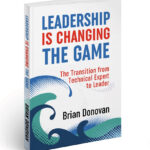Photo by Aaron Burden on Unsplash
Students in a University psychology class were given a questionnaire the day after the space shuttle Challenger disaster and their responses were kept on file. They were asked where they were, who were they with and what they were doing when it happened. Two and half years later they were asked the same questions. Despite their confidence that they could recall accurately, most were way off compared with their initial responses. Elizabeth Phelps, a leading researcher on emotionally charged memories at New York University concludes that, “The more we learn about emotional memory, the more we realize that we can never say what someone will or won’t remember given a particular set of circumstances.”
This study seems relevant as the year closes in. We try to remember what we have accomplished. But our unreliable memory will give us all the evidence we need to beat ourselves up and step over our significant achievements. We conclude that we have not accomplished that much and what’s more there is a long list of what we have not yet done.
Paul was like that. He was his own worst enemy as he gathered evidence that he was not really cut out to be a great leader. Of course, the examples he used to prove his case were based on his unreliable memory. Those around him knew the difference he made and suggested that he scrap his unhelpful narrative about himself. He decided to focus on doing what he loved; connecting people to help them leverage results. Importantly, he added a new practice of writing in his journal each day three things that he was proud of having accomplished. The point is that he no longer relies on his poor recollection of events. His daily recordings of big or small achievements add up to a year of compelling evidence of his leadership.
What evidence are you gathering?
Best regards, Brian


